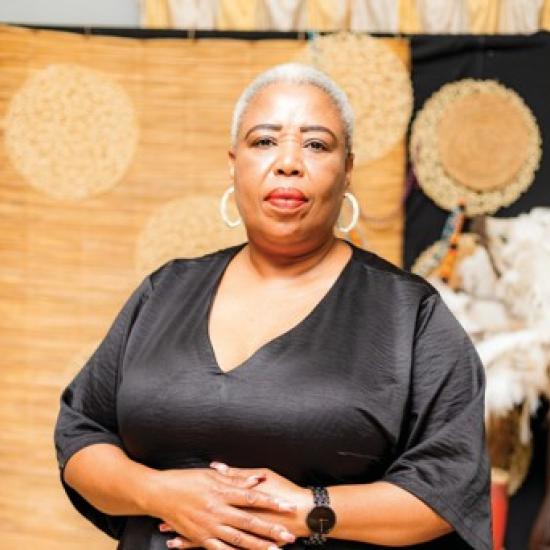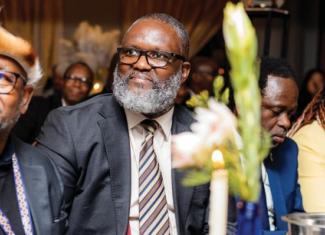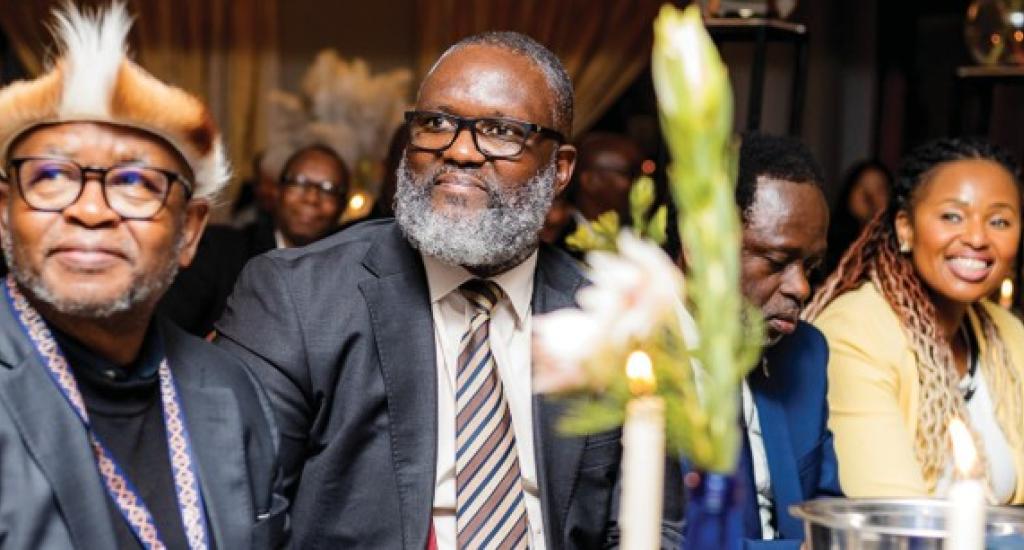Close the digital divide –
clear message from ICEGOV 2024

While technological advancements are reshaping our economies, industries and societies at an unprecedented pace, inclusivity must be at the centre of digital transformation. These were the sentiments expressed at the International Conference on Theory and Practice of Electronic Governance (ICEGOV) 2024.
The conference was hosted by the Department of Public Service and Administration, the Centre for Public Service Innovation and the Wits School of Governance (Wits University) in partnership with the United Nations University.
The annual gathering to bring together academia, governments, international organisations, civil society and industry to share the latest insights and experiences in the theory and practice of Electronic Governance (referred to as Digital Governance) took place in October at the Council for Scientific and Industrial Research Convention Centre, Pretoria.
“Artificial intelligence (AI) is at the heart of [digital] transformation, offering immense potential to innovate and address some of the world’s most pressing challenges”, said Professor Tshilidzi Marwala, Rector of the United Nations University.
Marwala said difficult questions need to be asked: “How do we govern this rapidly evolving field responsibly and ethically? How do we push the boundaries of innovation while ensuring that human values, rights and dignity remain central? How do we foster progress while safeguarding against the risks AI presents”.
Acting Executive Director of the Centre for Public Service Innovation, Lydia Sebokedi, said she learnt a lot from the research presented at ICEGOV from different countries.
“It gives us an opportunity for government to use this evidence to build better policies and frameworks. We need to move with speed... as Professor Marwala indicated the pros and cons of AI, that struck me that we must use AI but be prudent about how we use it. We need to make sure that our systems are secure, we share data openly in government to better help our citizens,” said Sebokedi.
Marwala added that AI should be included in strategies for achieving the Sustainable Development Goals (SDGs) but must be done responsibly and should not exacerbate the inequalities these goals are seeking to eliminate.
“It is estimated that AI could contribute to 134 targets across 79% of all SDGs, accelerating progress on issues from poverty eradication to climate action. Data-driven development, for all its promise, brings new risks.
“This year alone, over 2 billion people will have participated in democratic elections worldwide. Yet we have seen how technologies like deepfakes can undermine the integrity of these processes, posing serious threats to global democracy. The challenge, then, is clear: comprehensive governance frameworks are essential to protecting our systems and institutions,” he added.
Human values and rights as well as access were key to the deliberations.
Alfred Mashishi, Deputy Director-General at the Department of Communications and Digital Technologies, explained that government utilises AI for several purposes, including monitoring energy systems, evaluating disaster situations, automating services for smooth access by citizens in sectors like education and health, as well as for diagnostic and analytical tasks.
Leaving no one behind
Marwala also pointed out that addressing bias in AI is both a technical and moral imperative. He urged governments and institutions to take proactive measure to ensure the use of diverse datasets.
"Inclusivity must be at the heart of AI development – this is not only an ethical issue but one of economic and social justice."
Speaking at the same event, Wits Chancellor, Dr Judy Dlamini, made a passionate plea to consider marginalised people who need to be included in the digital transformation process.
“I want you to notice the missing residents of Mamelodi township... notice the missing rural dweller. Notice the loud absence of the one who could not afford the conference registration fees and transport to be here.
“Notice the unconnected, unaware, unskilled millions in the global south who are living alternate realities to many of the digital dreams that we are discussing here. Notice the missing ones that do not trust in digitalisation,” said Dlamini.
There were calls from both Dlamini and Marwala to ensure that African languages and indigenous knowledge are also factored into digital tools.
“That little girl or Gogo (grandmother) who cannot speak here for herself truly bothers me, whose language and indigenous knowledge is ignored or excluded make me feel like an accomplice in her exclusion. The thing is it does not have to be that way,” she added.
Meanwhile, Marwala shared his firsthand experience in exploring the challenges faced by AI language recognition technologies in understanding low-resourced languages, such as Ju/’Hoansi San, spoken by an indigenous group in Southern Africa.
“Being spoken only by tens of thousands, this language is underrepresented in digital contexts, leading to AI systems that struggle to capture its nuances,” Marwala explained.
Speakers also urged governments to introduce policy interventions to close the digital divide, especially with regards to gender. According to a report shared by Global Digital Inclusion, Connected Resilience, globally countries stand to lose over $500 billion in the next five years as long as women stay unconnected or experience a lack of access to the digital world.
Govender is a Communications Manager at the Wits School of Governance




